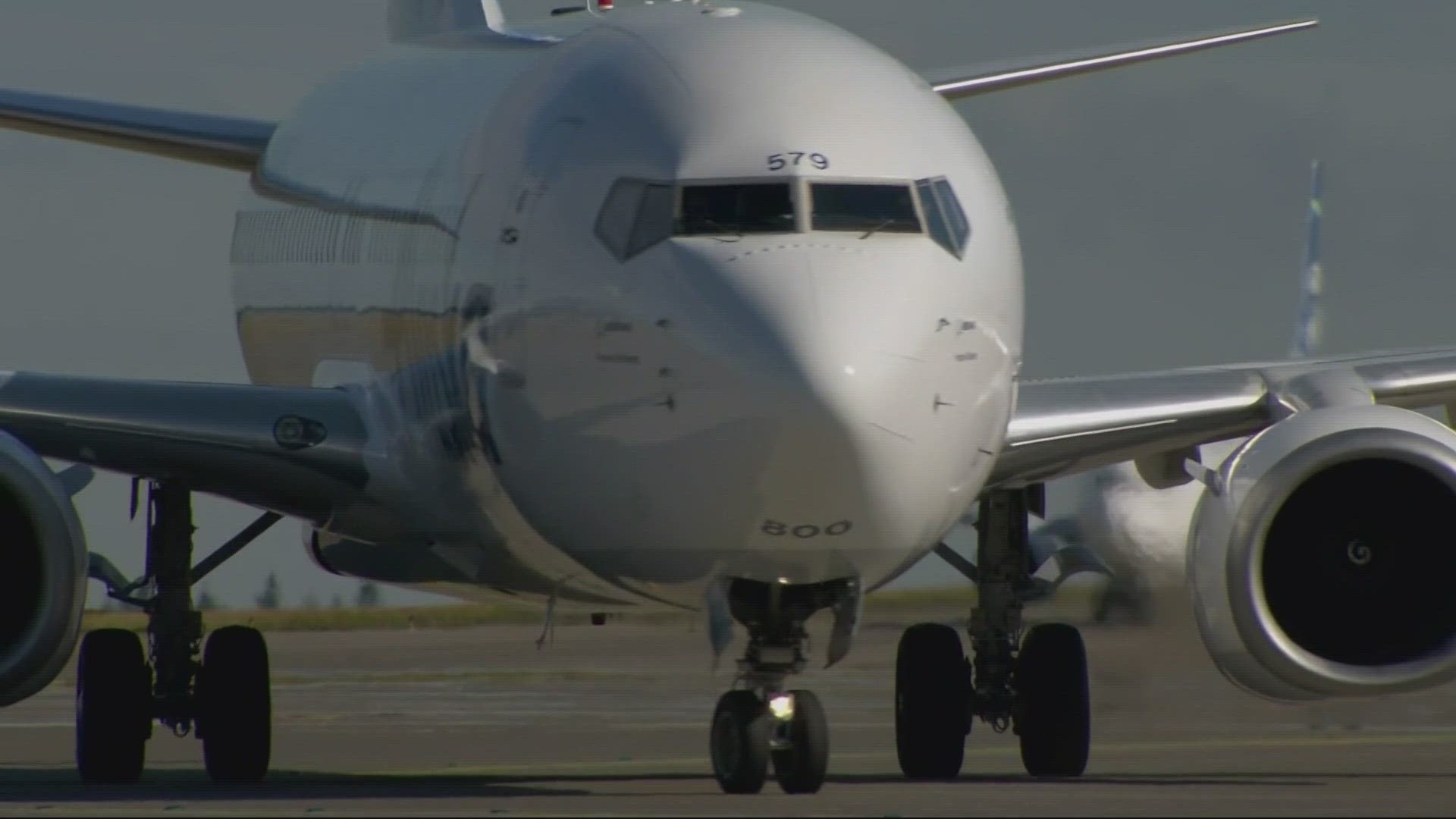PORTLAND, Ore. — In the wake of an off-duty Alaska Airlines pilot's alleged attempt to shut down a plane's engines mid-flight over the weekend, investigators have started to reveal some of their initial findings in court documents about Joseph Emerson's mental state. For some industry experts, the fact that his struggles went unnoticed isn't entirely surprising.
According to the Federal Aviation Administration, Emerson had successfully completed all of his mandatory medical certifications. But in court filings, investigators report that Emerson admitted he'd been depressed for six months and had just lost a close friend.
Following his arrest on Sunday, Emerson reportedly told police he was having a "nervous breakdown" and had not slept in 40 hours after taking psychedelic mushrooms for the first time.
It's unclear exactly if or when Emerson sought professional help for his mental health struggles. Regardless, his case raises many questions around flight crew judgment, mental health and wellbeing.
Experts suggest airline professionals will often deny any mental health struggles that might lead to a diagnosis, even something seemingly innocuous like Seasonal Affective Disorder, because it could cost pilots their medical credentials.
“Unfortunately, due to restrictions by the FAA, diagnoses can be what we call 'grounding,' or pilots can get their wings clipped,” said Kora Kresin, an aviation therapist with Flight Deck Support Community.
Kresin said she cares deeply for those in the airline industry — including her roommate, who is a pilot. She said pilots who report a mental health diagnosis often remain grounded until they pay thousands of dollars out of pocket to prove they're not a safety risk. For that reason, she said, they'll often avoid seeking help for everyday stressors that so many people struggle with.
"If your cat dies or you lose a family member or you're processing it, most people take six months to a year to process really big changes," said Kresin. "Depending on how your aeronautical medical examiner interprets that, that could be considered a mood disorder."
For that reason, even as a licensed therapist, Kresin uses the title "life coach" while helping aviation professionals. She feels it creates less chance of forming a paper trail that could jeopardize her clients' careers. In that same vein, she fears many who need help may seek it through other means, like drug use.
"We have to acknowledge the systemic damage that has done up to this point for pilots that are stuck," said Kresin.
Many in the airline industry hope that pilots know where they can get help, including peer-to-peer groups that airlines provide. And with time, they hope the kind of help that so many in the industry need will be available and celebrated rather than feared by those who need it.
"Yeah, I think it's a problem," said Greg Morris, a captain for a major airline. "I think we need to let our guard down just enough to indicate that we need some help."
Morris, who’s been flying since 1997, noted that while many things have changed in his industry, the toll that often accompanies being away from loved ones for long periods of time and working all hours of the day remains.
"It can be tough on pilots and flight attendants," said Morris. "So we need to put greater emphasis on mental health issues and the tolls our job takes on us and the impacts that mental health can play."

